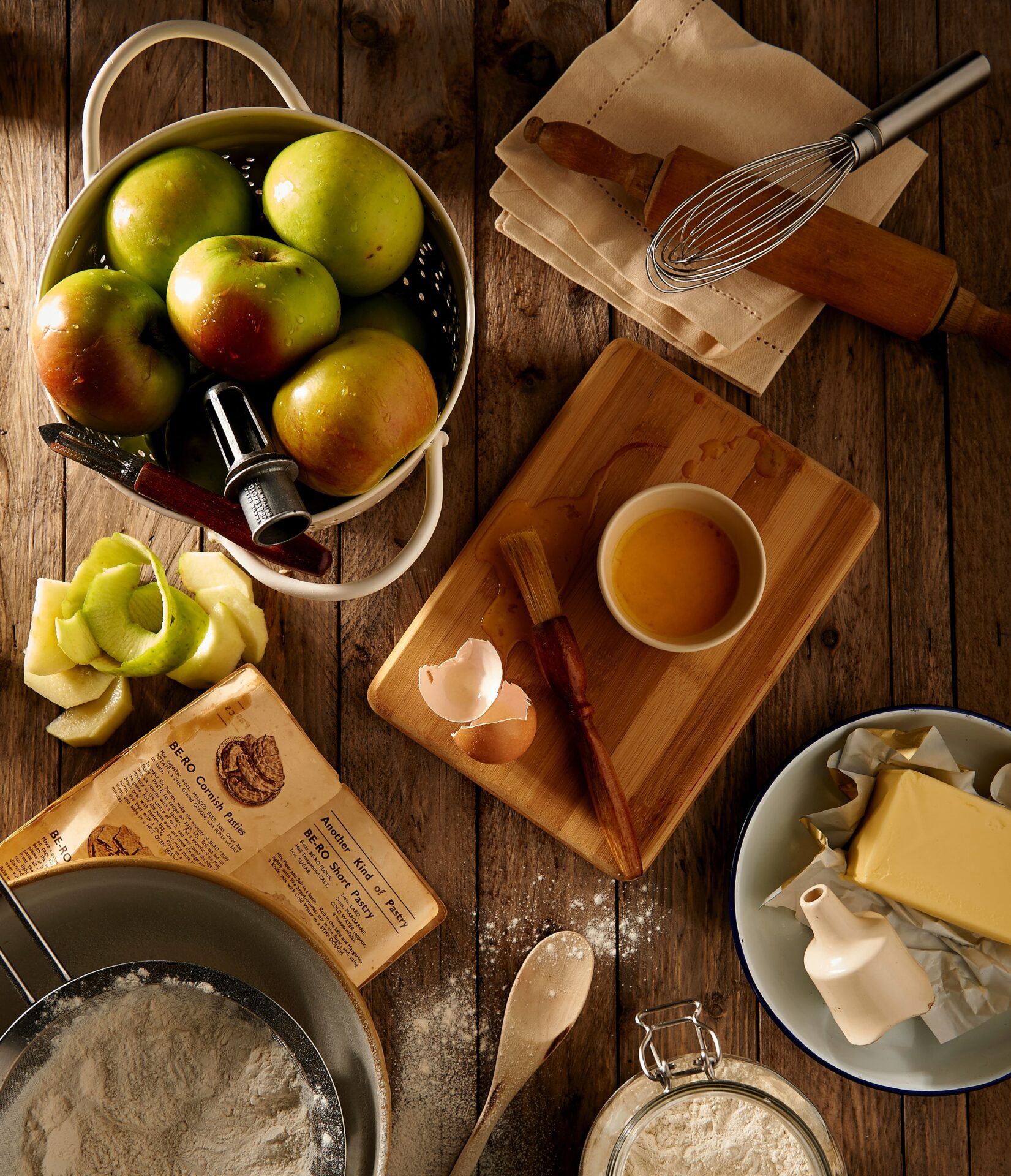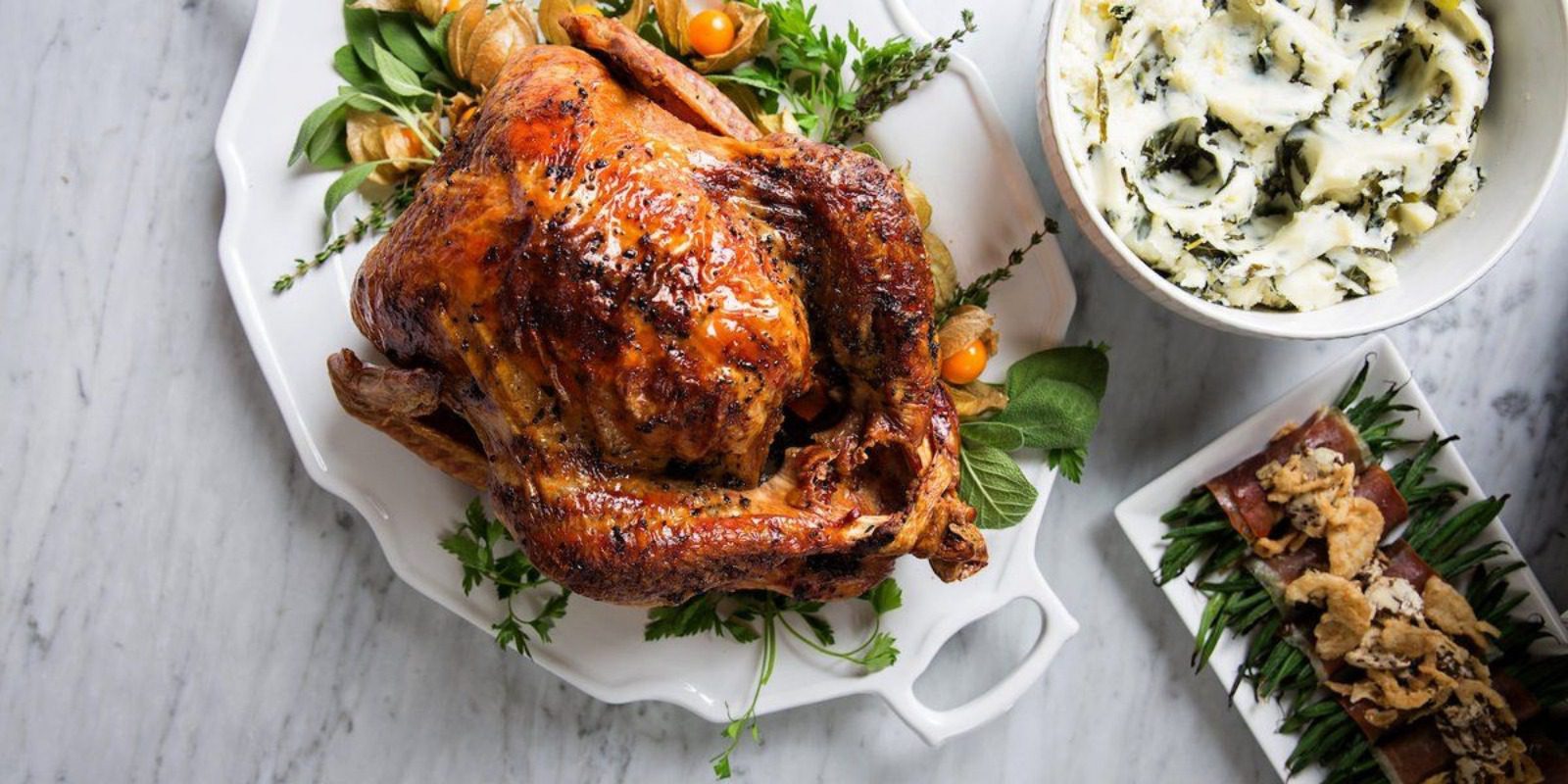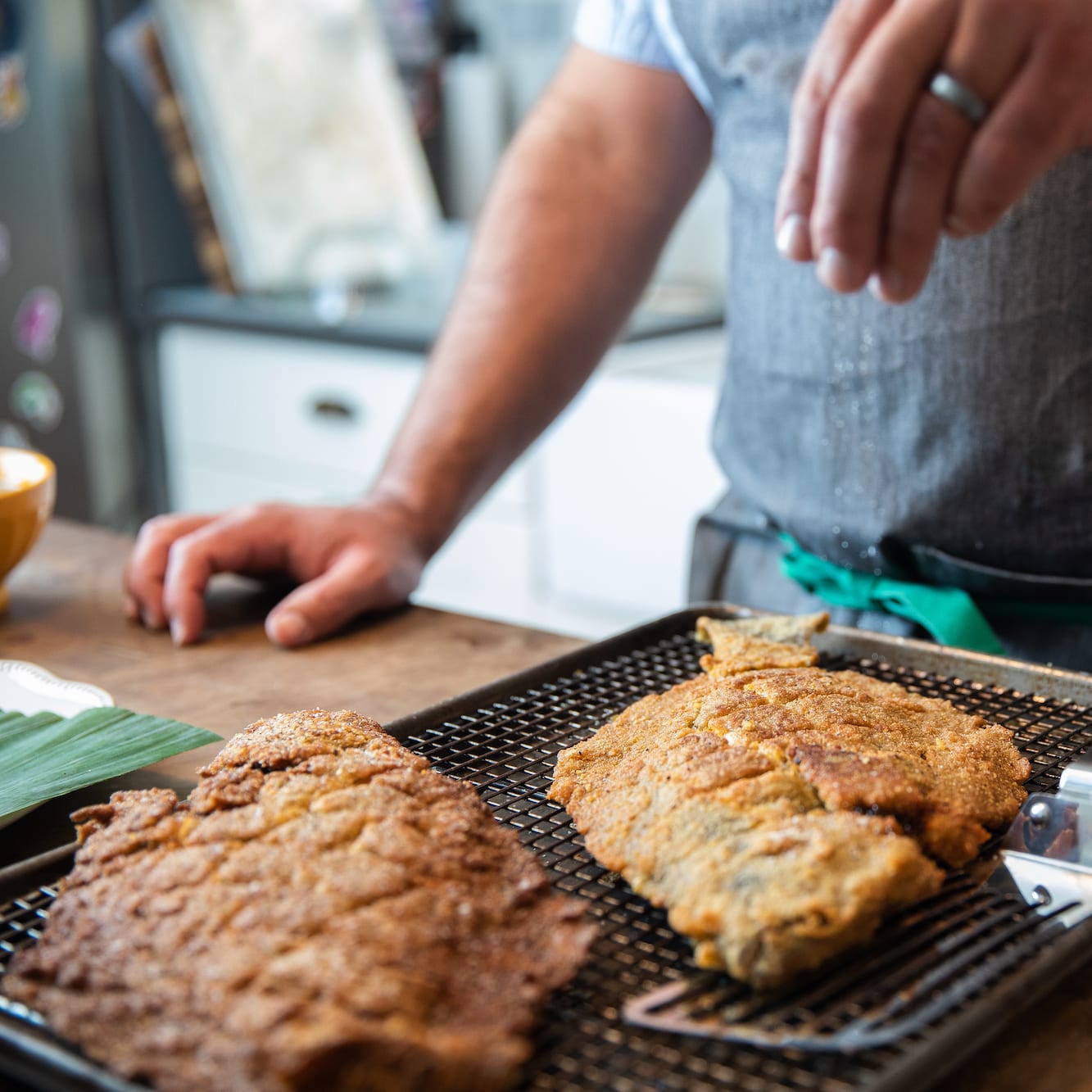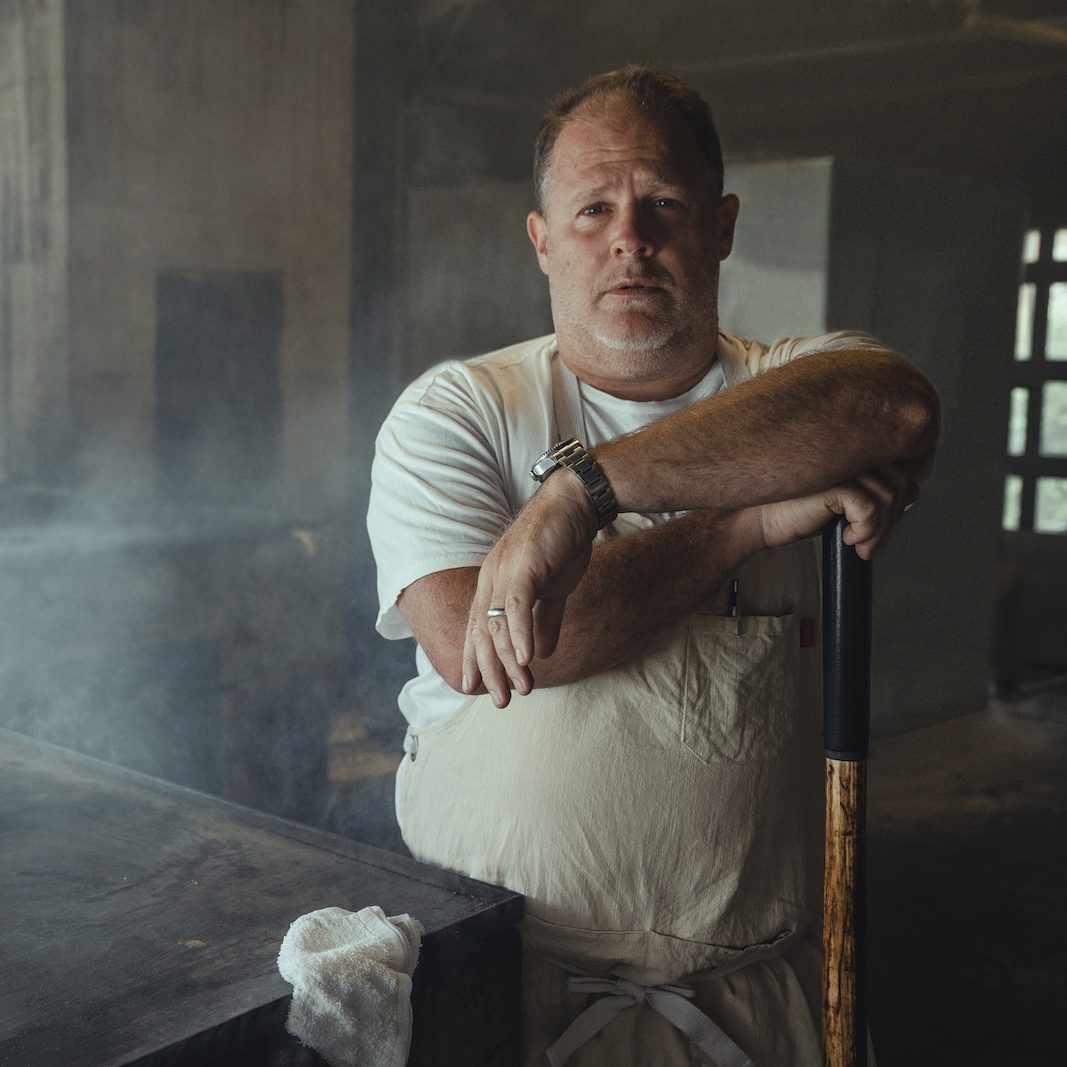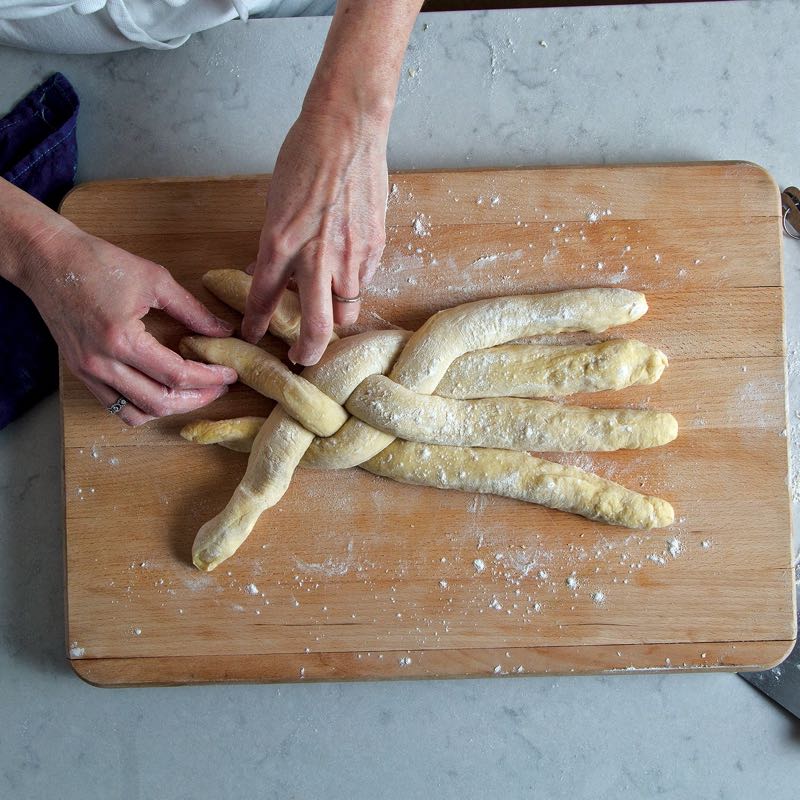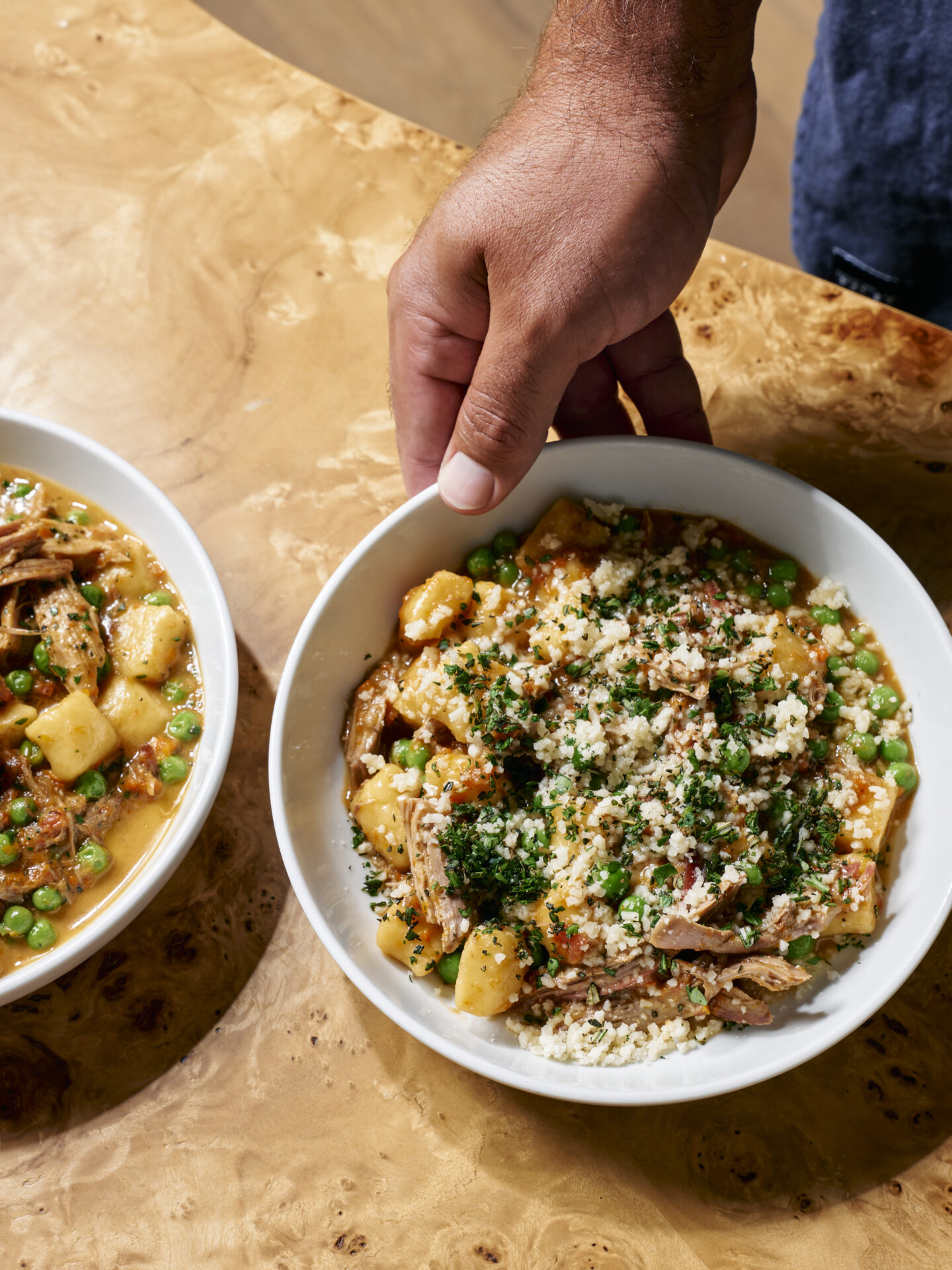Serves 4
Culinary Class
How to Pan Fry Pork Chops, the Panee Way
By: Lia Grabowski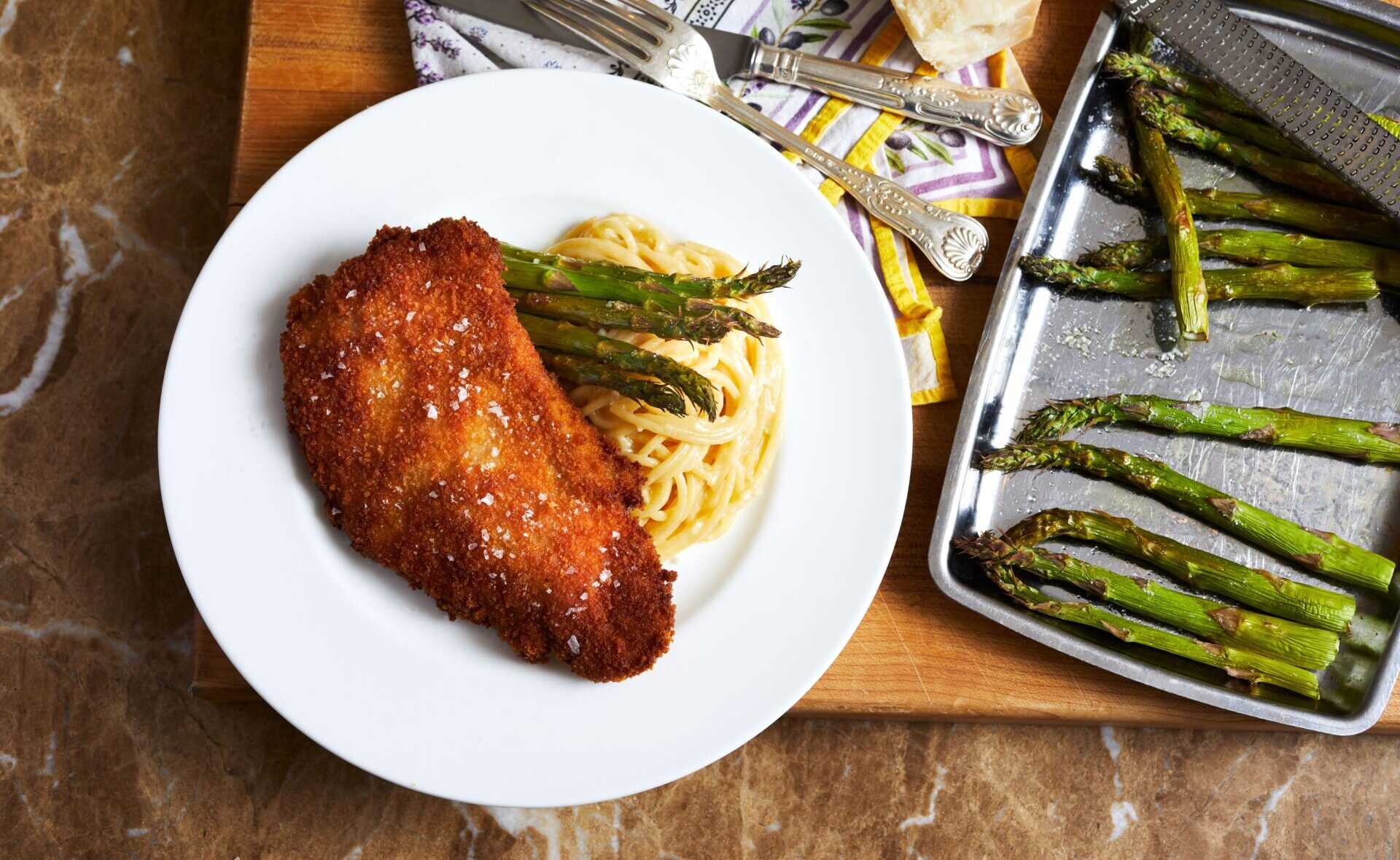
A
hallmark of New Orleans cuisine is the mingling of cultural influences that make the city’s most well-known dishes. Among them, how to pan fry pork chops into the humble paneed pork marries the techniques of Milanese dishes from the city’s Italian immigrant communities with a Creole flavor profile.
“It’s the kind of dish that’s prevalent in family celebrations, and it’s on Creole Italian menus all over town,” says chef Jason Goodenough, a New York transplant who’s made New Orleans his home for more than a decade.
After closing his beloved Carrollton Market restaurant during the pandemic, Goodenough started an innovative culinary immersion program, the New Culinarian (TNC), for home cooks to explore New Orleans cuisine at the elbow of a renowned chef. The four-day experience is split between a professional kitchen in the New Orleans Culinary & Hospitality Institute and a selection of restaurants that Goodenough feels best encapsulate the city’s old-school and modern culinary scene.
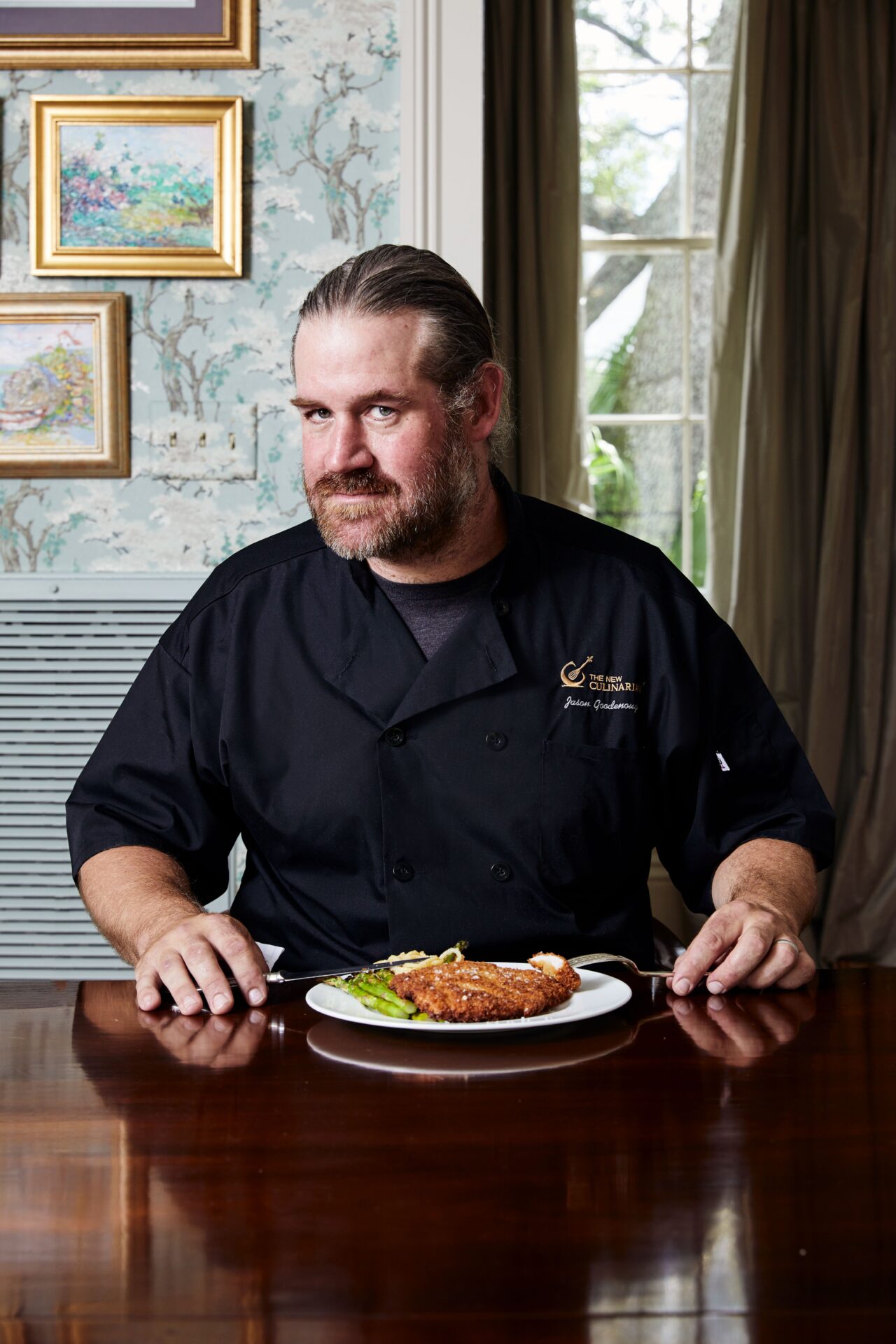
To develop the perfect paneed pork recipe, Goodenough first thought of the many paneed pork dishes he’d eaten in New Orleans. More specifically, what he disliked about them. The biggest problem was how to pan fry pork chops without drying out the pork. The optional brine in this recipe helps avoid it. The brine here is optional, but it’s a sure-fire way to avoid the common pitfall of dried-out pork. It also helps address Goodenough’s next troubleshooting topic: seasoning.
“I thought a lot about what step in the process to season the pork. Do you season the flour? Breadcrumbs?” As a result, he crafted a strong brine that imparts salt in a short amount of time. If the pork chops sit in the brine longer than two hours or so, you run the risk that they’ll become too salty. (Read: definitely don’t leave them brining overnight.) If you decide to skip the brine altogether, Goodenough suggests sprinkling the pork with salt directly after pounding it out, rather than seasoning the flour, for more control over the seasoning process.
The other key in how to pan fry pork chops, Goodenough says, is the oil temperature. If fried at the right temperature, the finished pork chops won’t be greasy, just perfectly golden and crispy. Rather than going by a particular degree on a thermometer, the chef notes a fool-proof method to determine if your oil is at the sweet spot: Sprinkle a couple of breadcrumbs in and see how they react. If they immediately, vigorously sizzle, your oil is ready. Don’t be afraid to adjust on the fly, he says.
“If you put the pork in and it doesn’t sizzle, just take it back out and wait! You don’t have to fully commit,” he says. On the contrary, if it’s too hot and begins to smoke, try adding room-temperature oil to bring it down quickly, rather than waiting for the temperature to lower on its own.
Finally, if you’ve seasoned properly and fried them just right, don’t ruin your hard work in the final step. “The importance of the wire rack hadn’t stood out to me until recently,” Goodenough says. Allowing air to circulate around the pork chops, rather than resting them on a paper towel to drain excess oil, keeps moisture from forming on the bottom and maintains crispiness on both sides. “Now, whenever I fry things, pan fry, even bake cookies, I break out the wire rack.”
Goodenough serves his paneed pork with spaghetti aglio e olio and roasted asparagus tossed in olive oil, salt, and lemon juice but emphasizes that the homey, rustic dish is a versatile base that can go with almost anything.
Paneed Pork Chops

For the brine
½ cup salt (Goodenough uses Diamond Crystal)
¼ cup light brown sugar
2 cinnamon sticks
4 bay leaves
1 clove
1 star anise pod
2 thyme sprigs
1 rosemary sprig
2 (8- to 10-ounce) pork loin chops
cut in half horizontally or through the equator
Ice
For the dredge
1 cup flour
1 tablespoon smoked paprika
2 teaspoons garlic powder
½ teaspoon cayenne
½ teaspoon chili powder
2 eggs
1 cup panko breadcrumbs
1 cup panko “flour” (see note)
Vegetable oil
Maldon sea salt for finishing
Note
One of Goodenough's favorite kitchen tricks is blending panko breadcrumbs in a high-speed blender
like Vitamix
until they're the texture of flour. The result is an impossibly light and delicate coating that doesn't overpower the star of the dish.
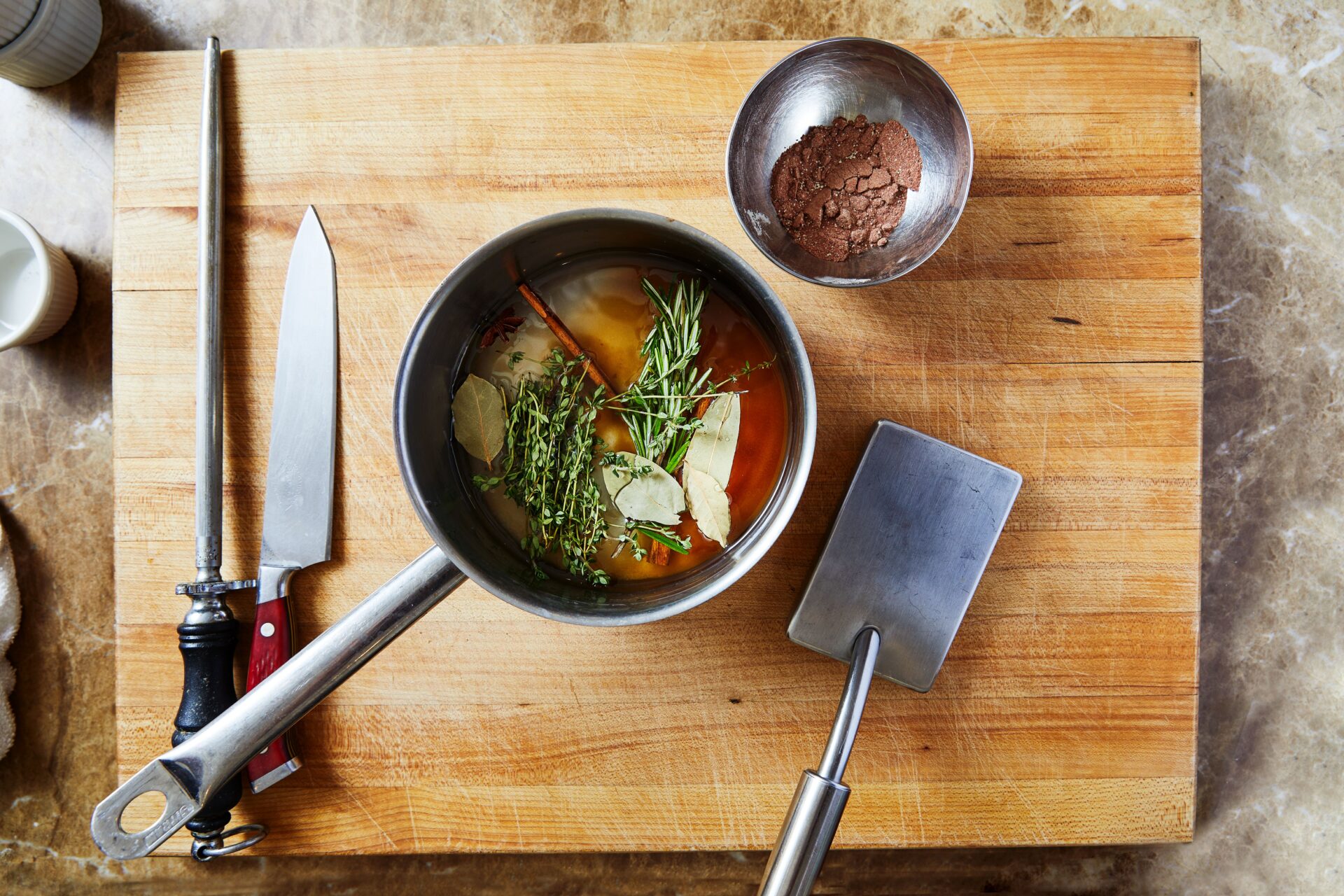
Step 1:
Brine the pork
In a saucepan, combine all brine ingredients except pork and ice with 2 cups water. Bring to a boil, then immediately turn off heat and transfer to a 1-gallon container. Add enough ice to bring the volume of liquid to ½ gallon. Submerge pork chops in brine for 2 hours.
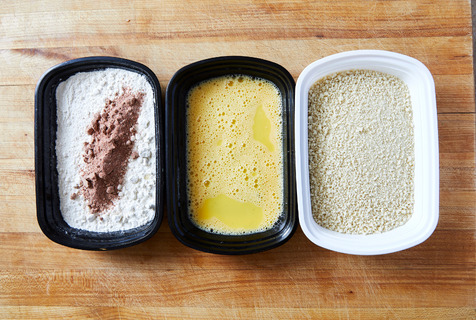
Step 2:
Prepare the dredge
In a large container, combine flour, paprika, garlic powder, cayenne, and chili powder. In a separate container, beat eggs with ¼ cup cold water until thoroughly combined. In a third container, combine panko breadcrumbs and blended panko flour. Set all three containers aside
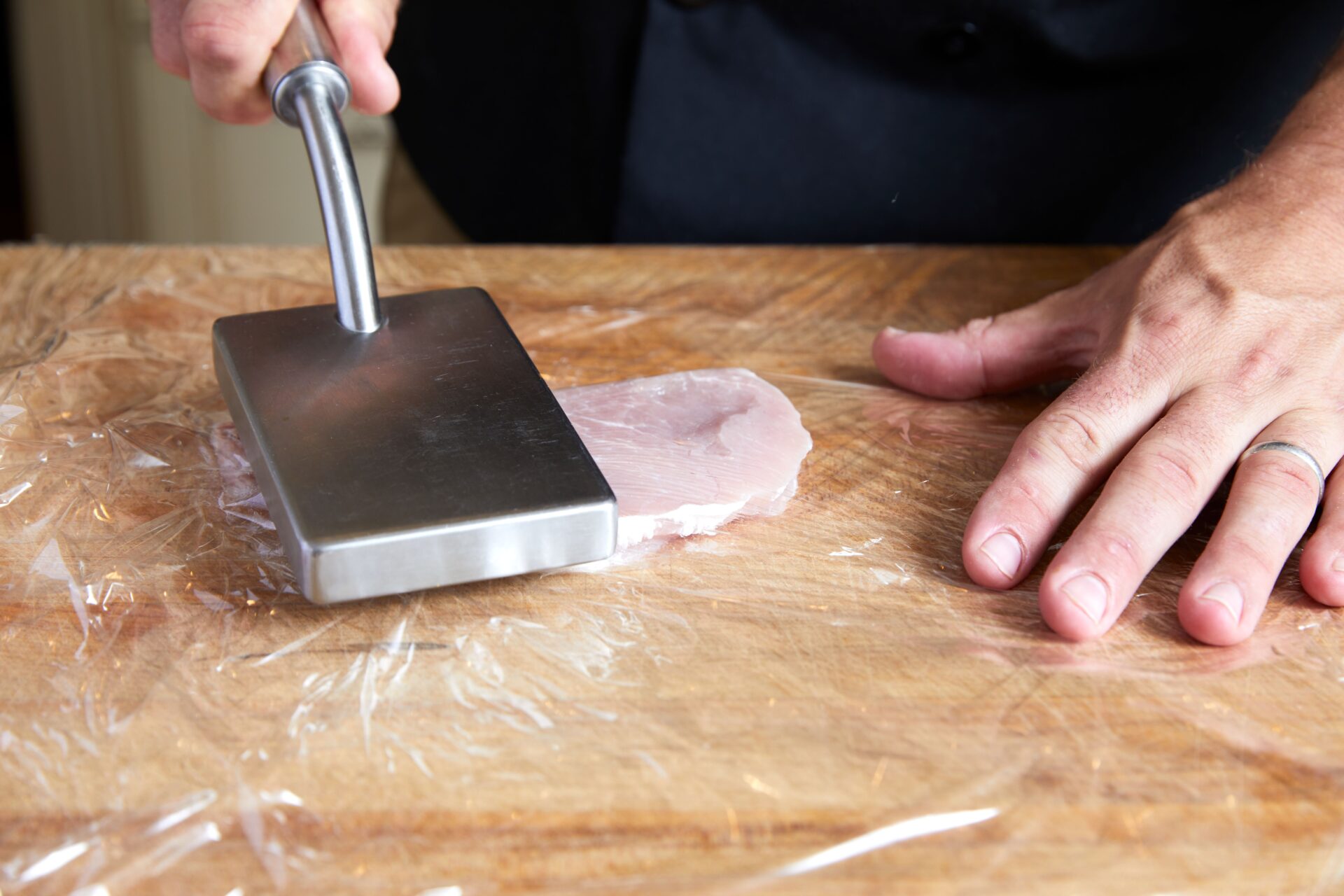
Step 3: Flatten pork chops
Once pork chops have brined, remove to a rack to drain excess liquid. Then, place each pork chop between two pieces of plastic wrap and pound until they’re between ¼- and ⅓-inch thick. (If they’re too thin, they’ll overcook before the breading browns.)
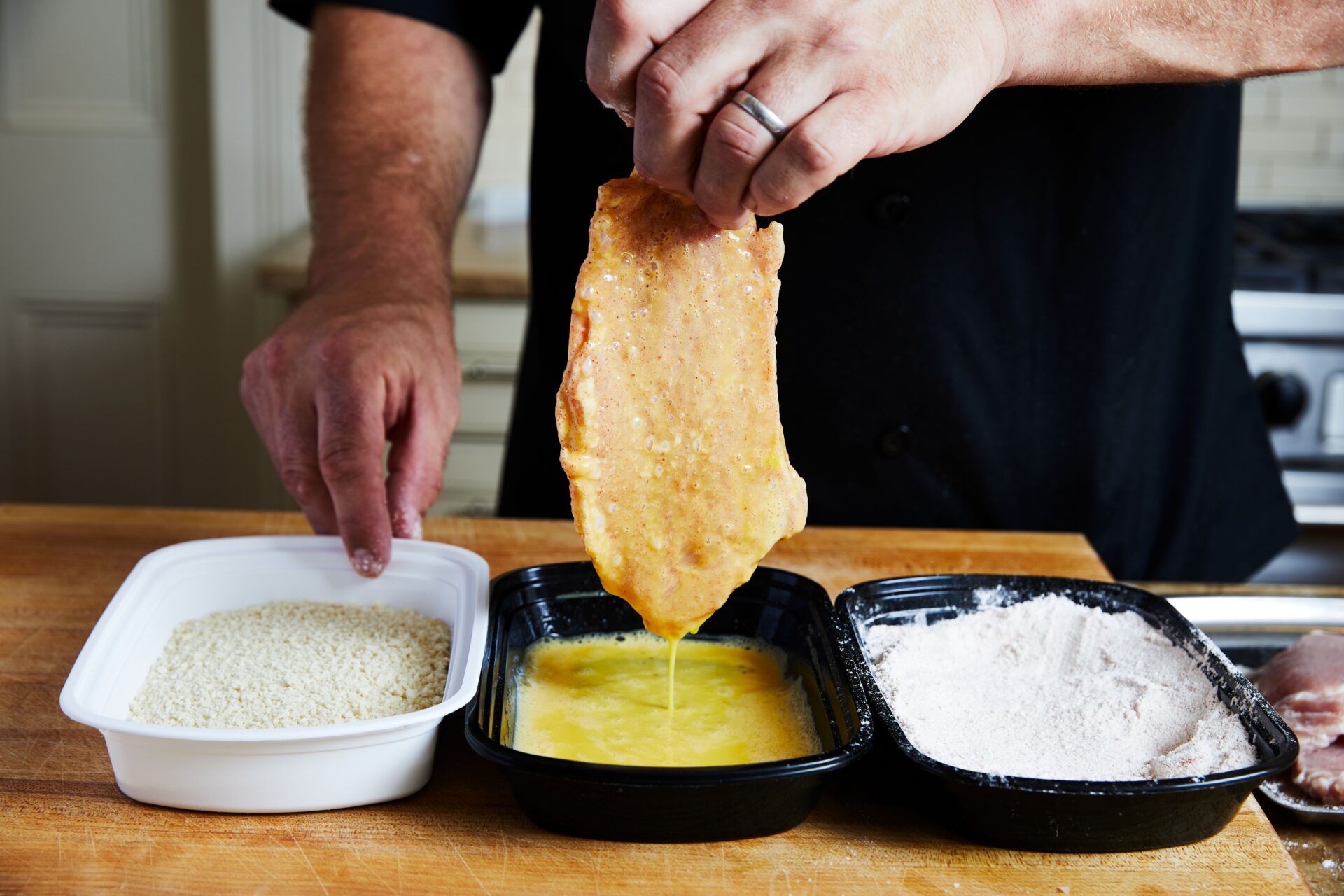
Step 4: Dredge
Dredge pork chops in flour, tapping off excess. Transfer to egg wash, then allow excess to drain off. Finally, dredge in breadcrumbs, pressing to ensure pork chops are fully coated.
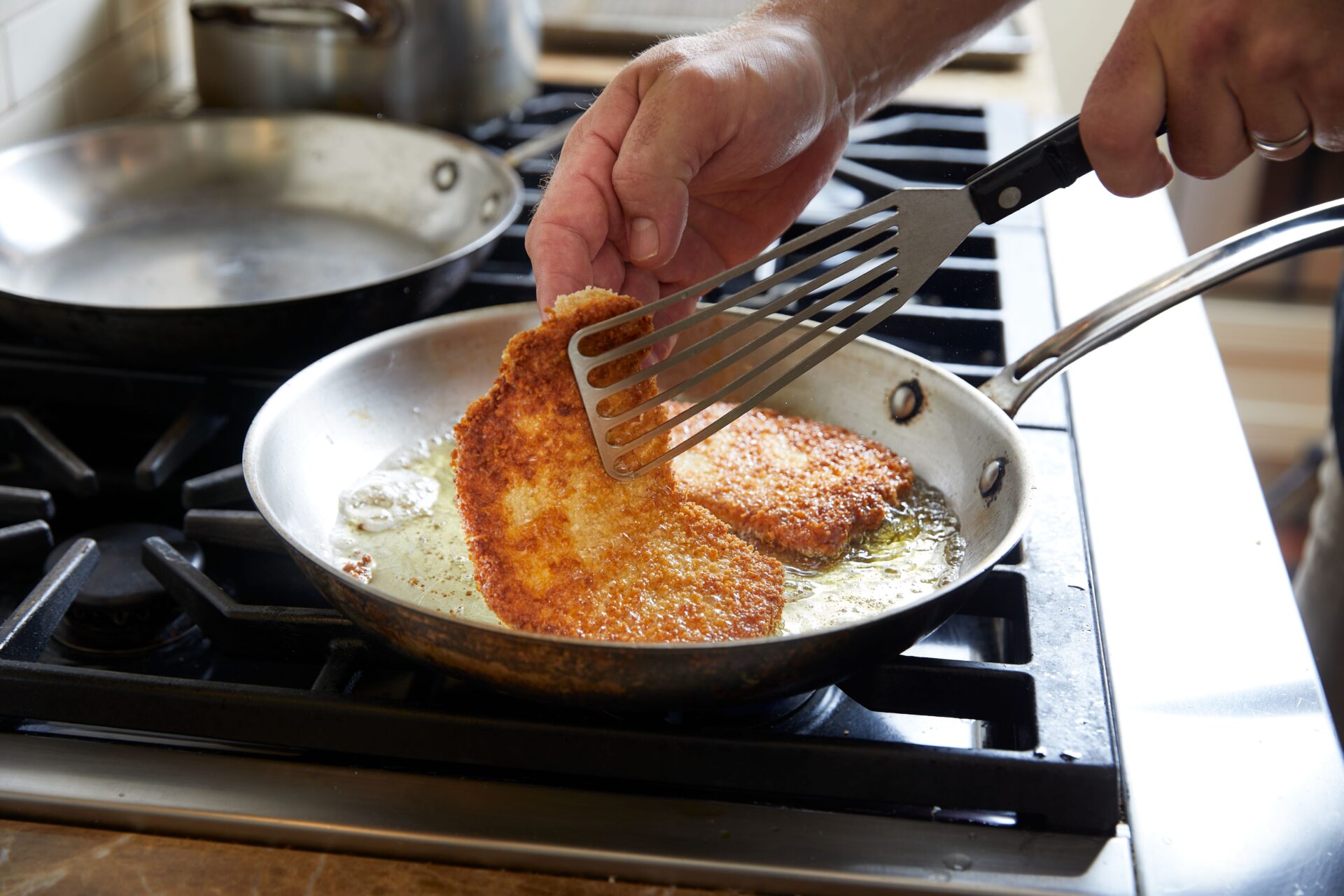
Step 5: Fry
To a large, high-sided skillet or a dutch oven, add enough vegetable oil to come halfway up the sides of the pork chops. Heat until a sprinkle of breadcrumbs sizzles vigorously when added. Add pork chops in batches, being sure not to overcrowd the pan. When cutlets start to brown visibly on the edges, flip and cook until both sides are sufficiently browned. Remove to a wire rack to rest for a few minutes. Sprinkle lightly with Maldon sea salt before serving
related reading
Culinary Class
How To Deep Fry a Turkey
TLP walks through how to deep fry a turkey proper (using safety techniques) to [...]
Culinary Class
How to Fry a Fish
The Local Palate shares some insider tips on how to perfectly fry a flounder [...]
Culinary Class
How to Smoke St. Louis-Style Spare Ribs
Nashville pitmaster and cookbook author Pat Martin gives us his no-fail method to smoking [...]
share
more culinary classes
How To Make Pan de Muerto
Ruben Ortega gives a step-by-step guide to perfectly spooky pan de muerto to celebrate [...]
How To Smoke a Turkey
Joe Kindred of North Carolina’s Kindred, Hello, Sailor, and milkbread, gives us his fail-proof [...]
How To Make Gnocchi
Chef Joe Kindred blends a Tuscan sugo with Thanksgiving flavors in this step-by-step guide [...]

